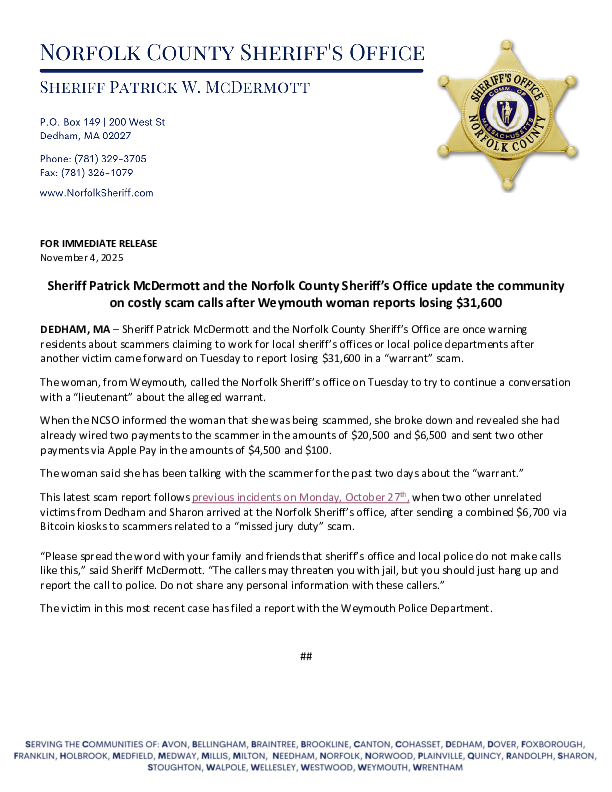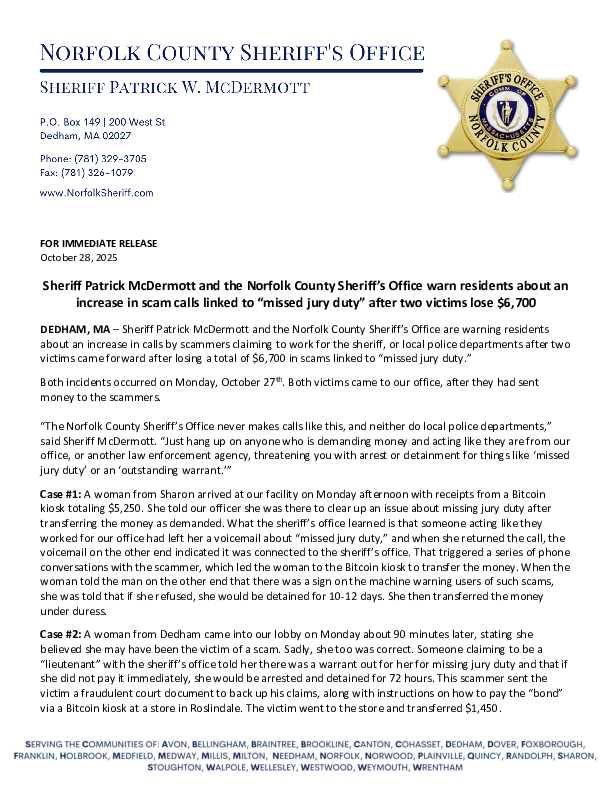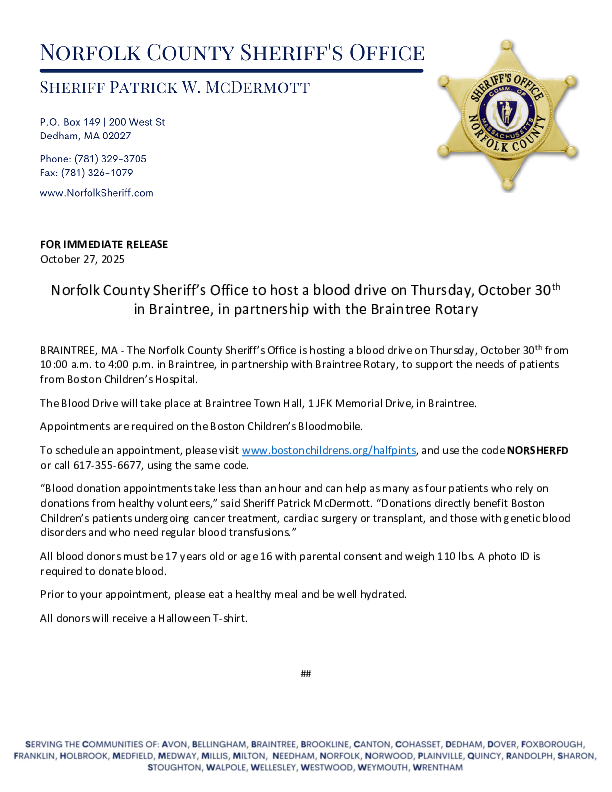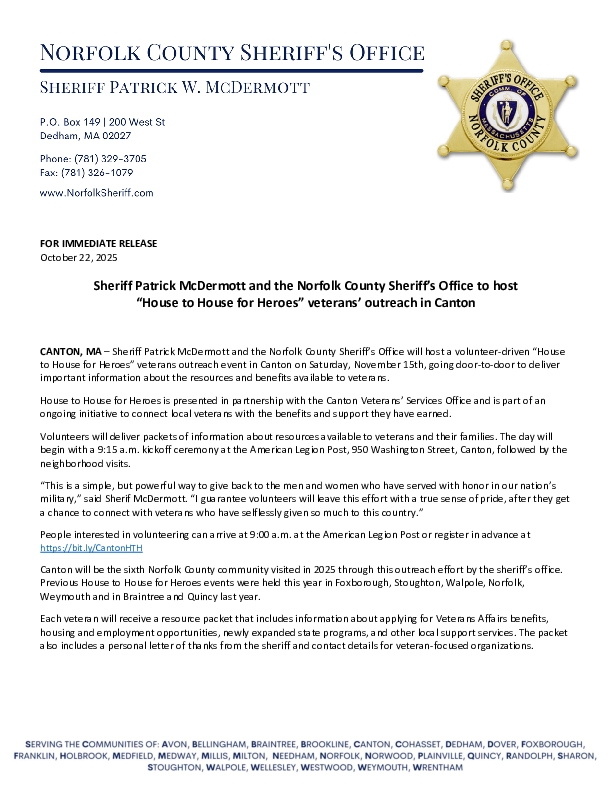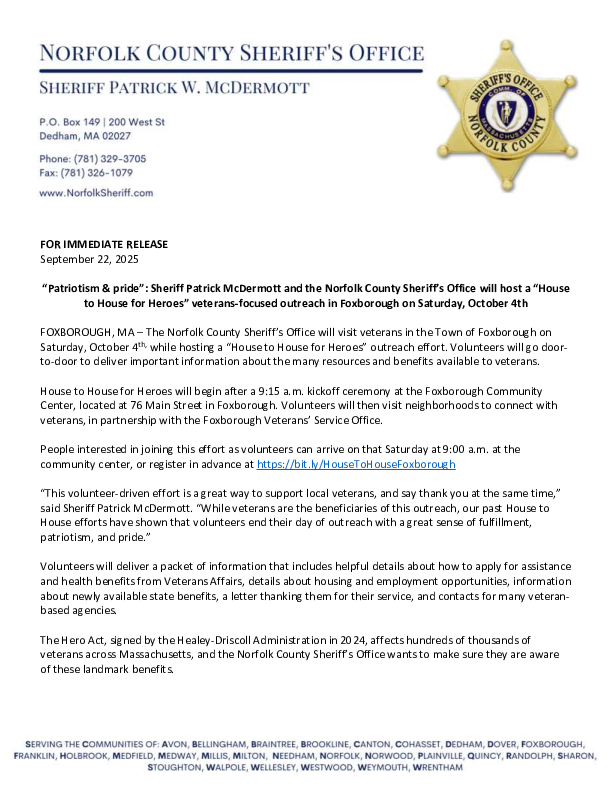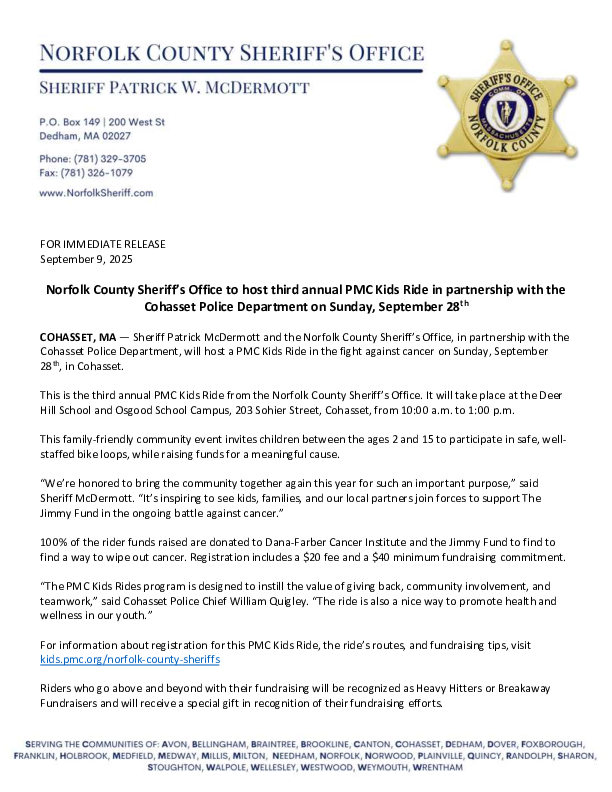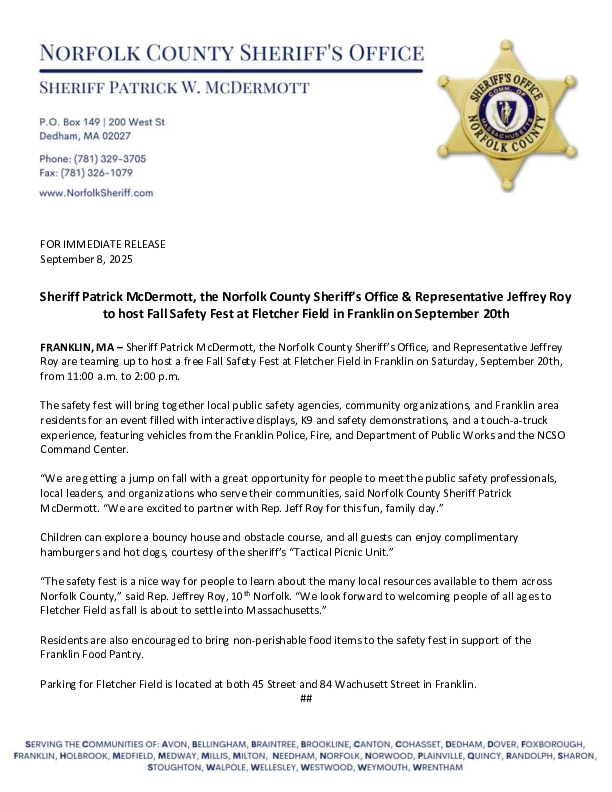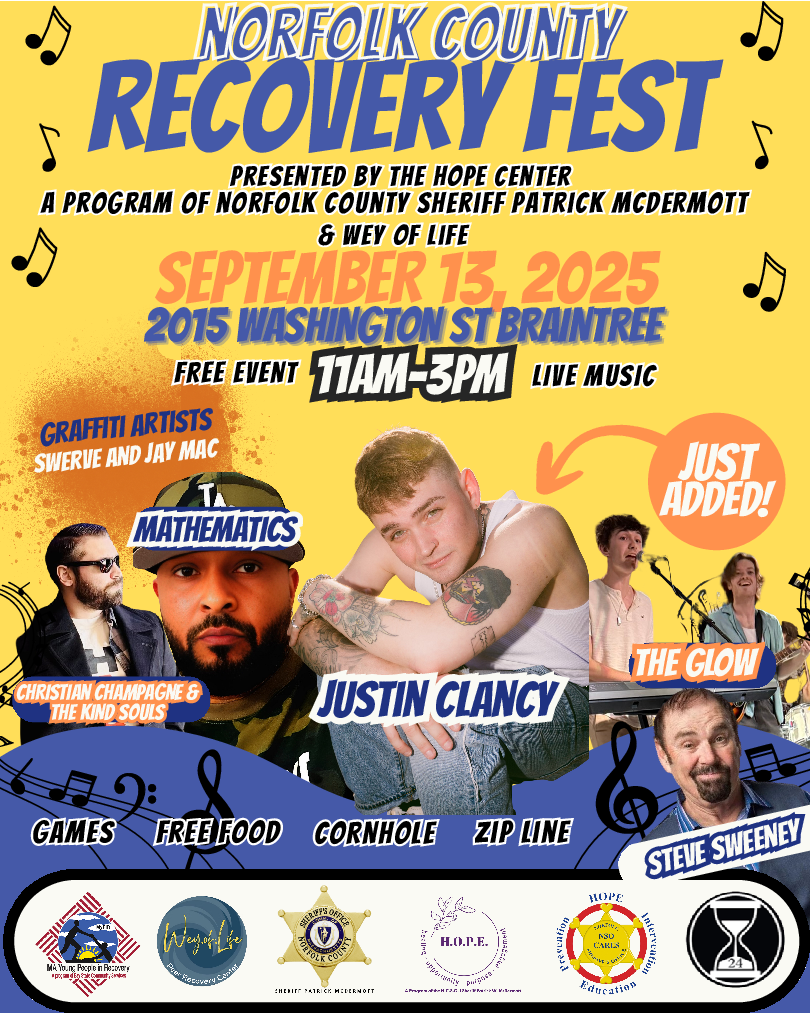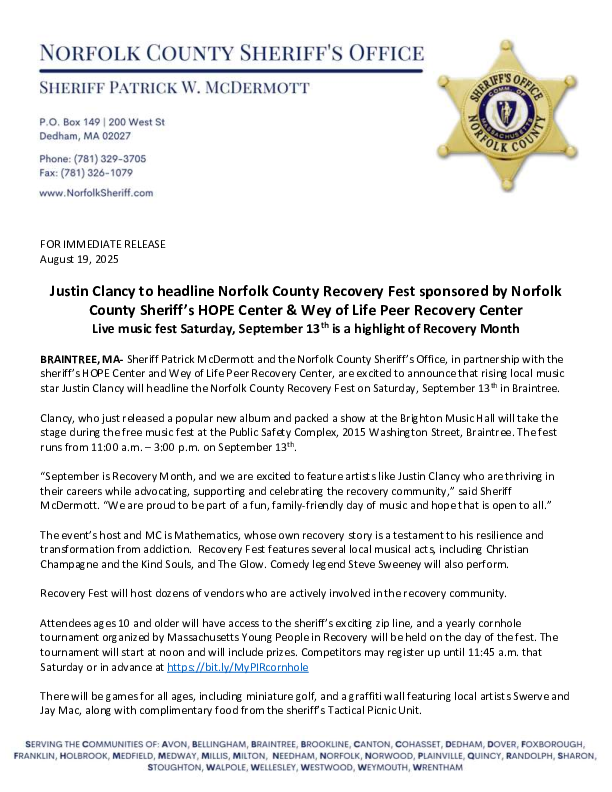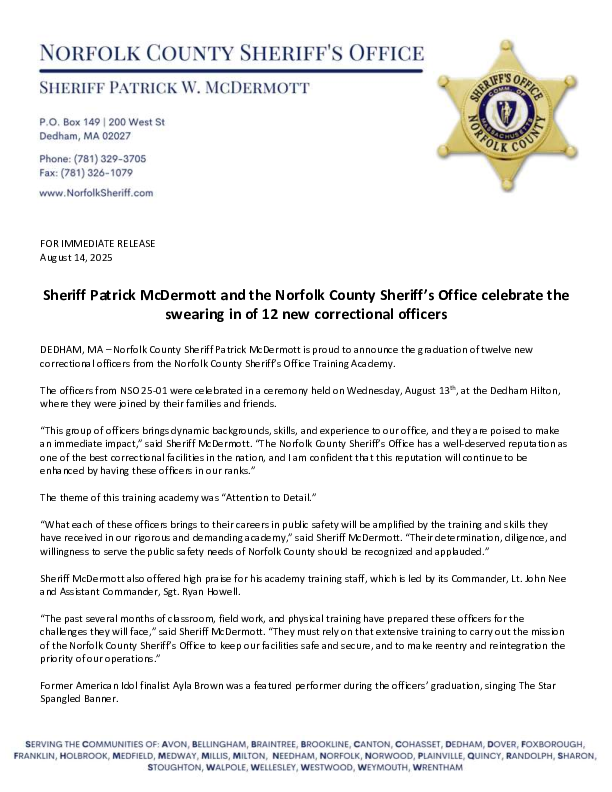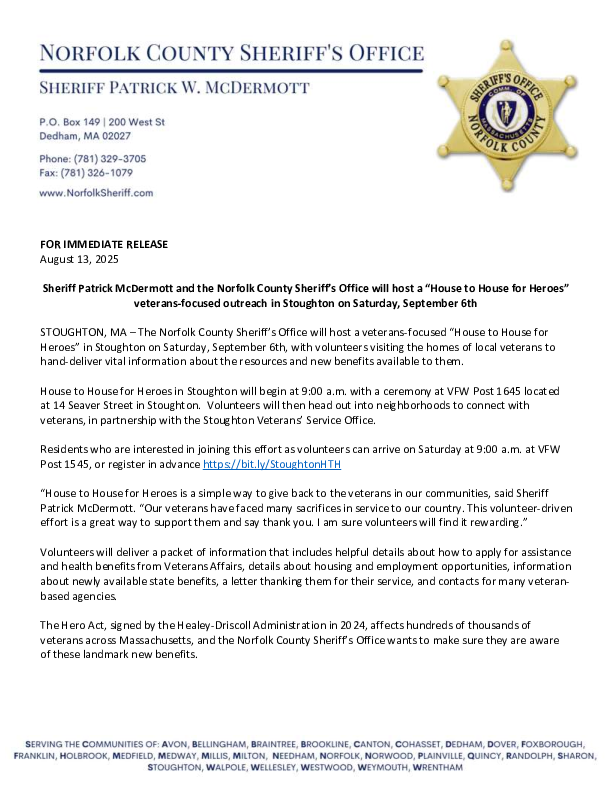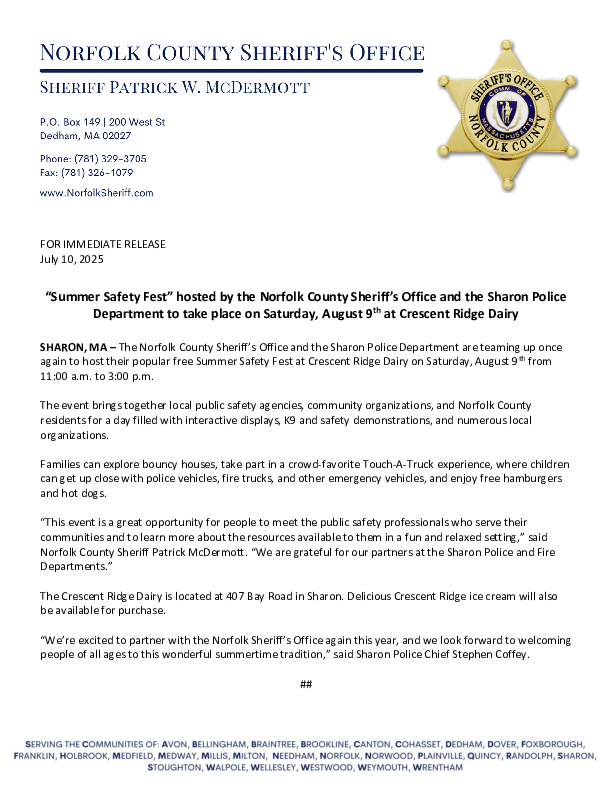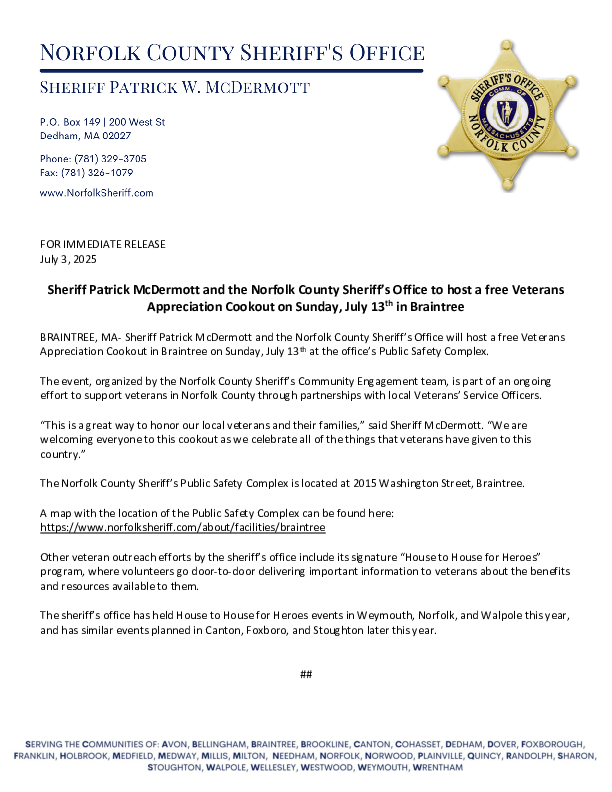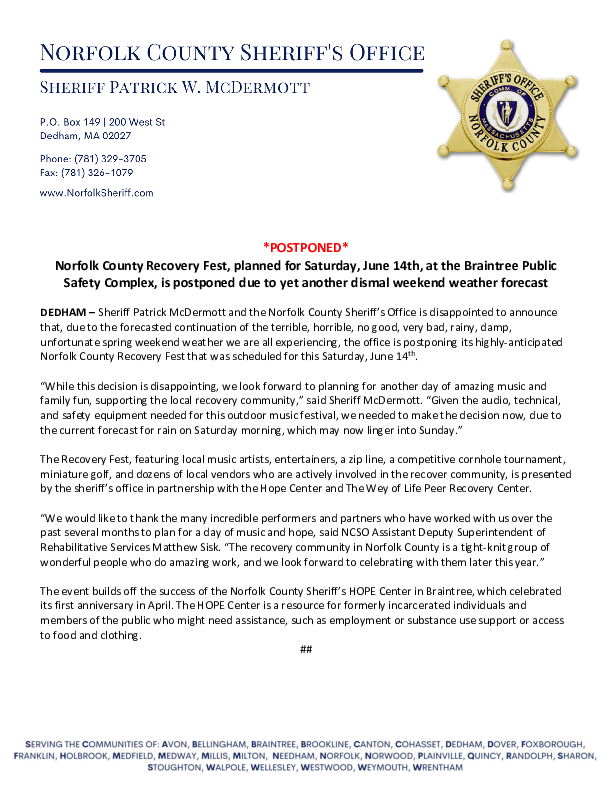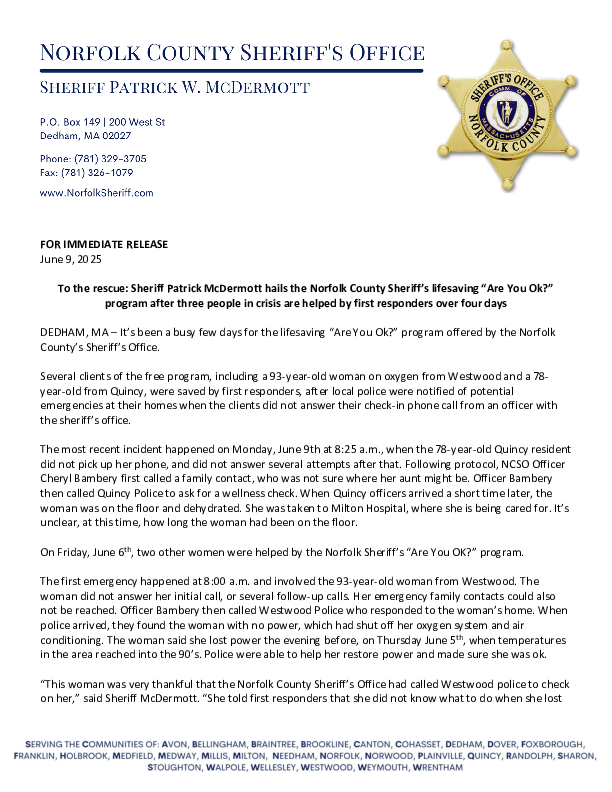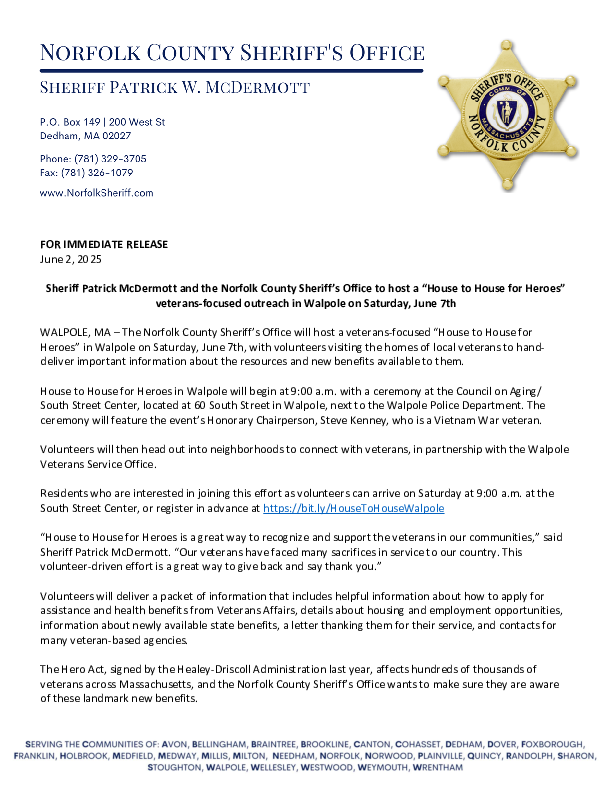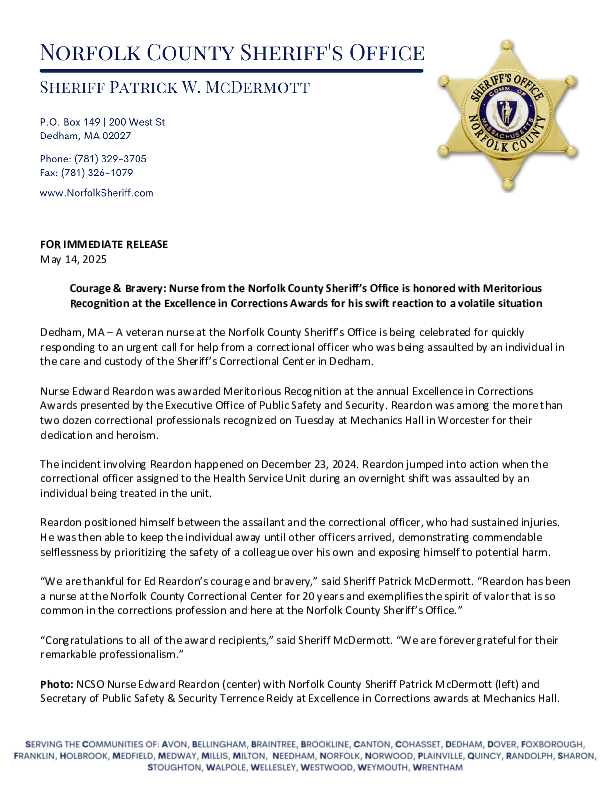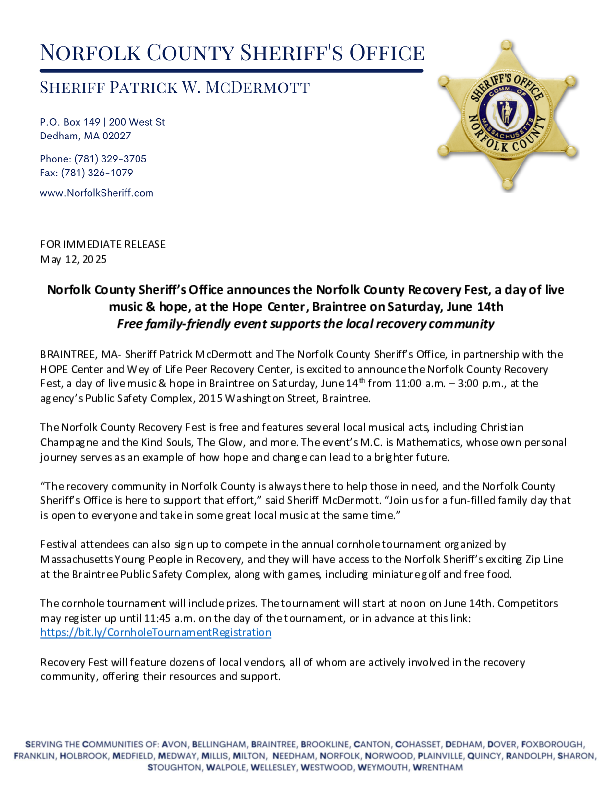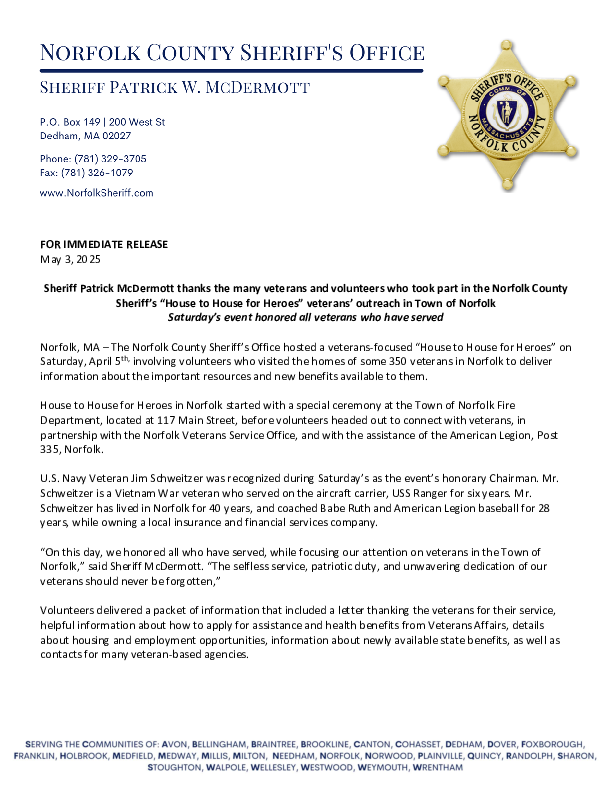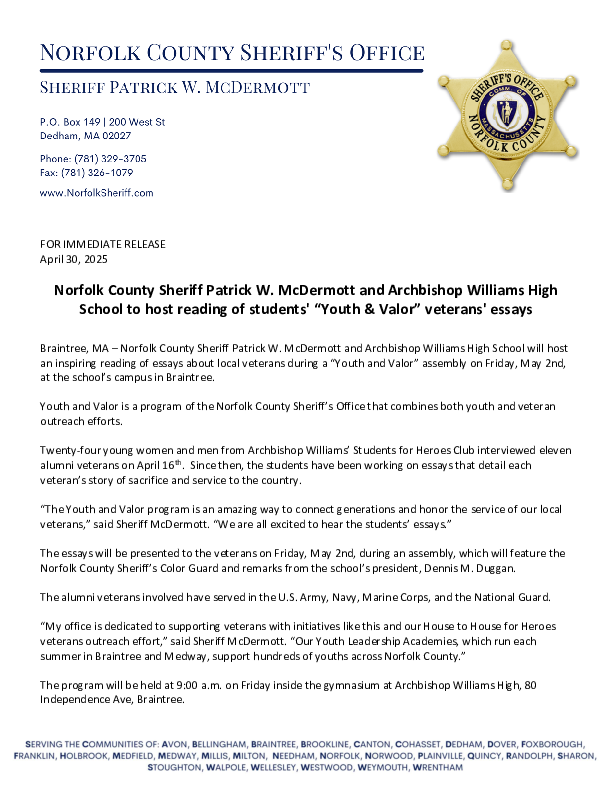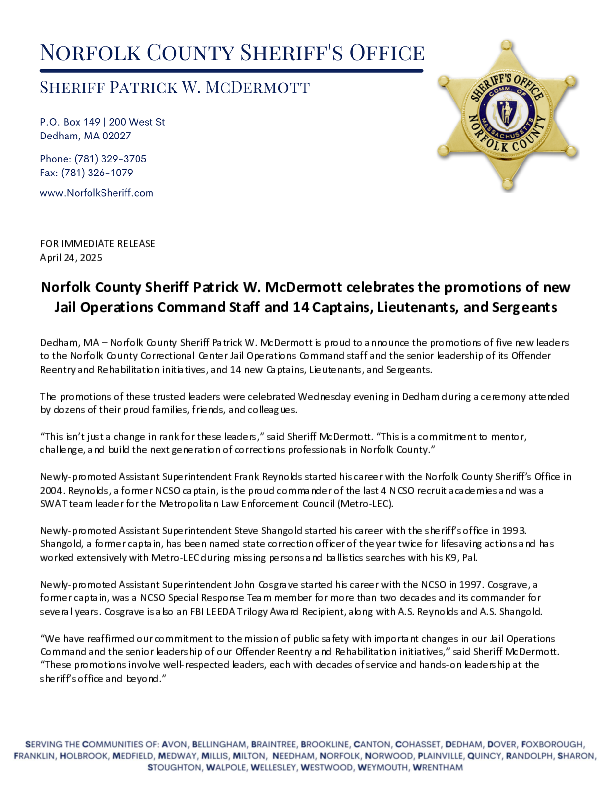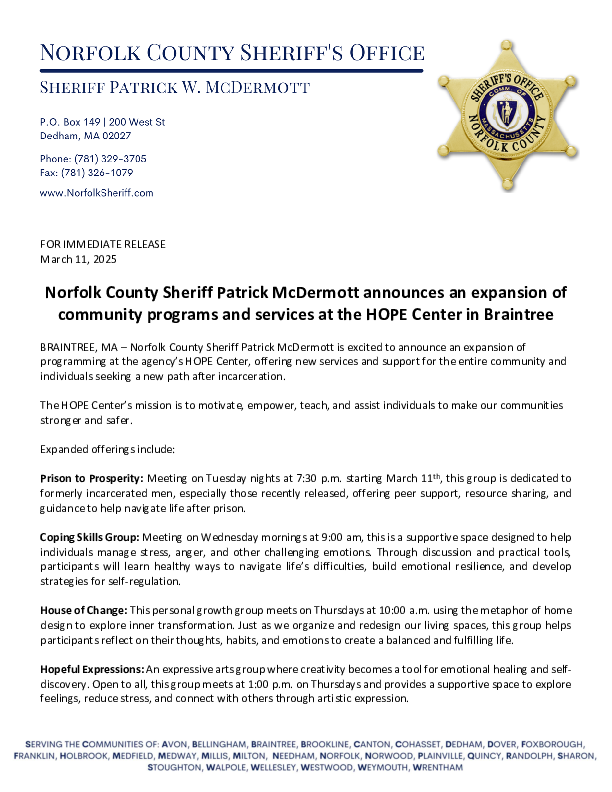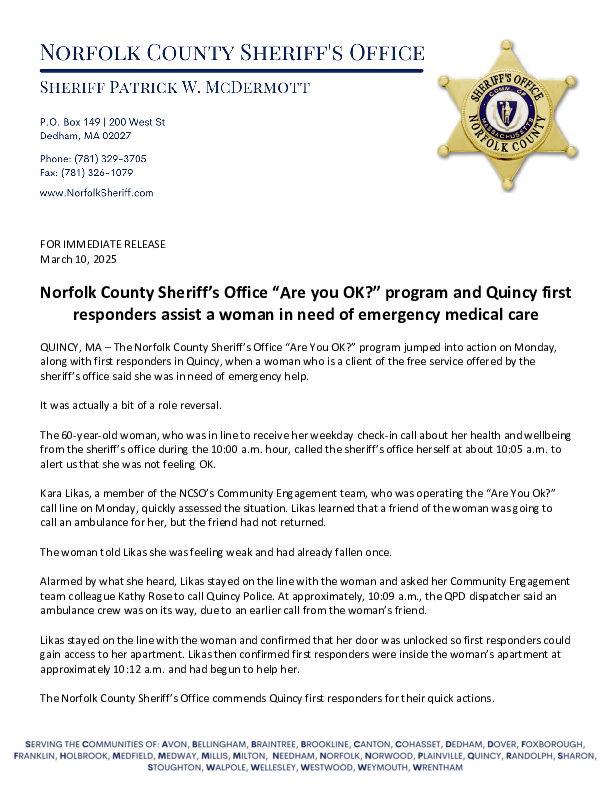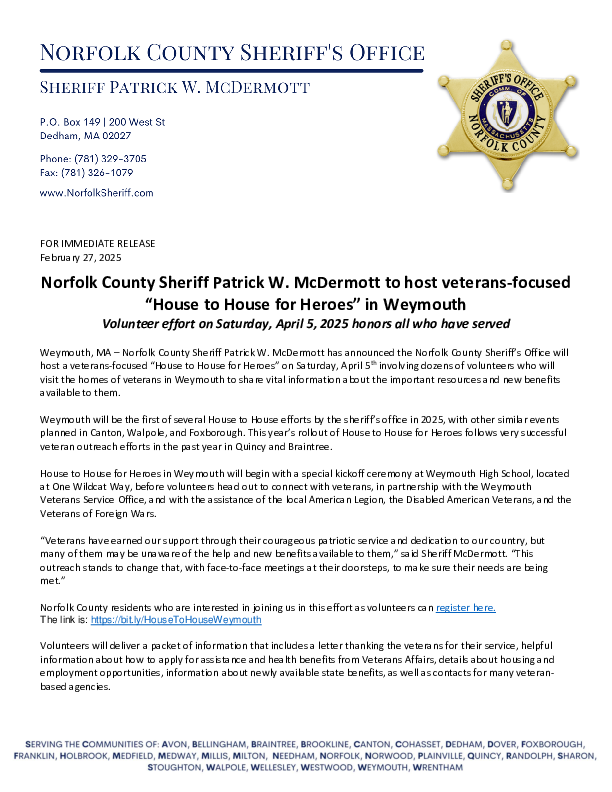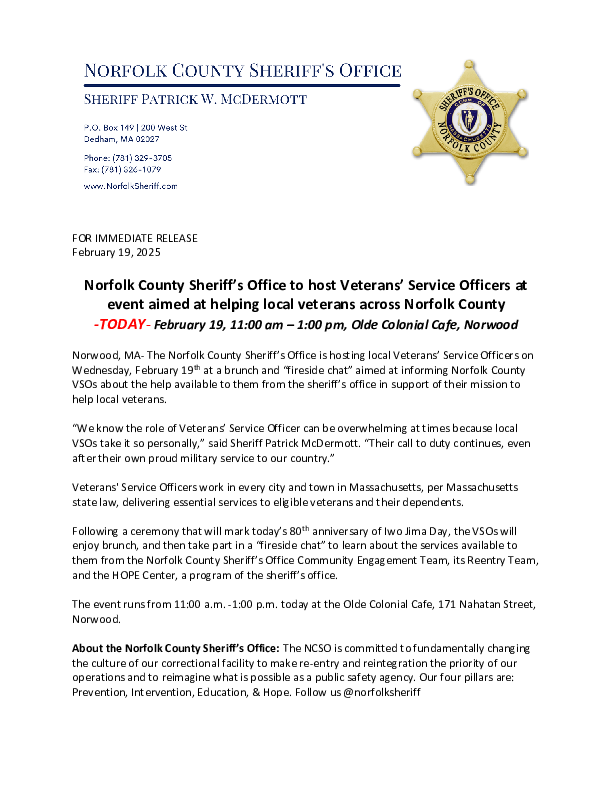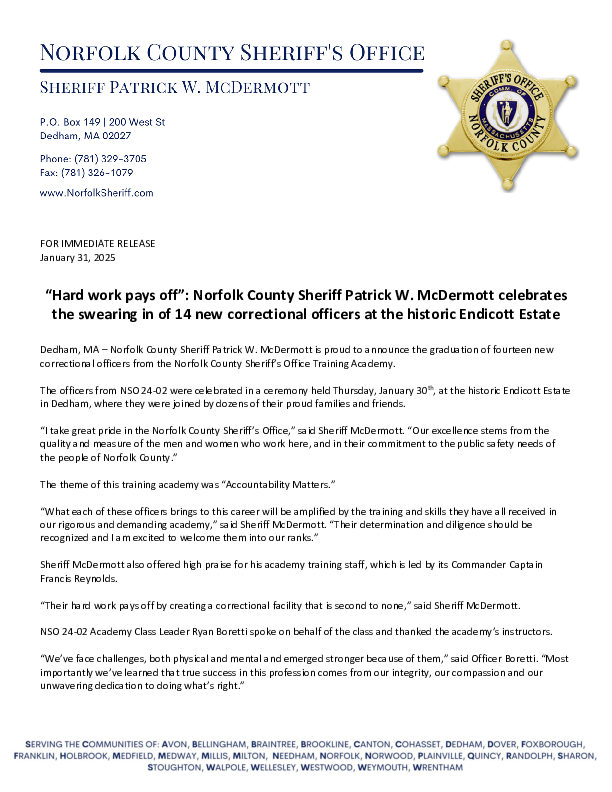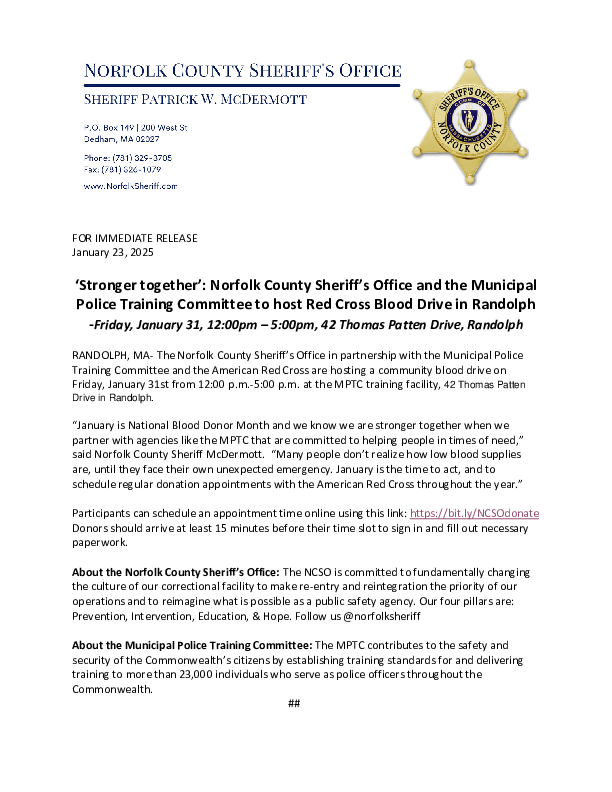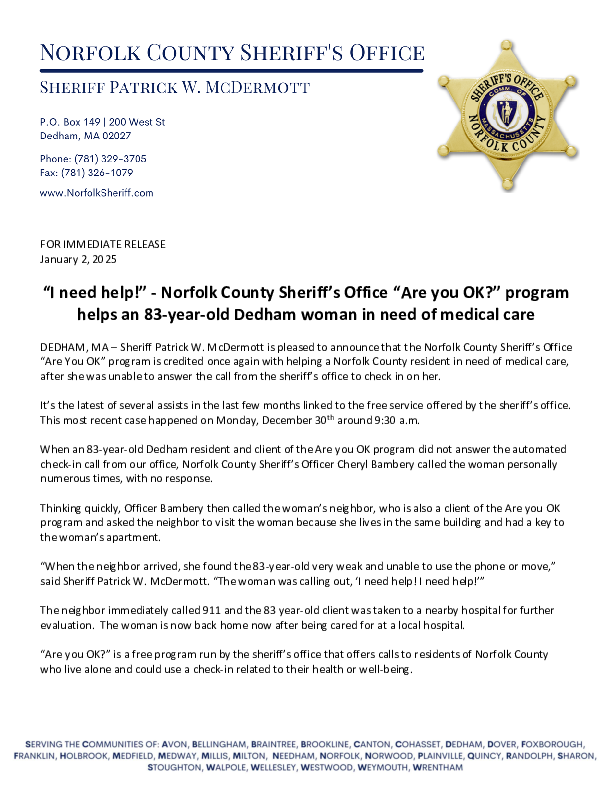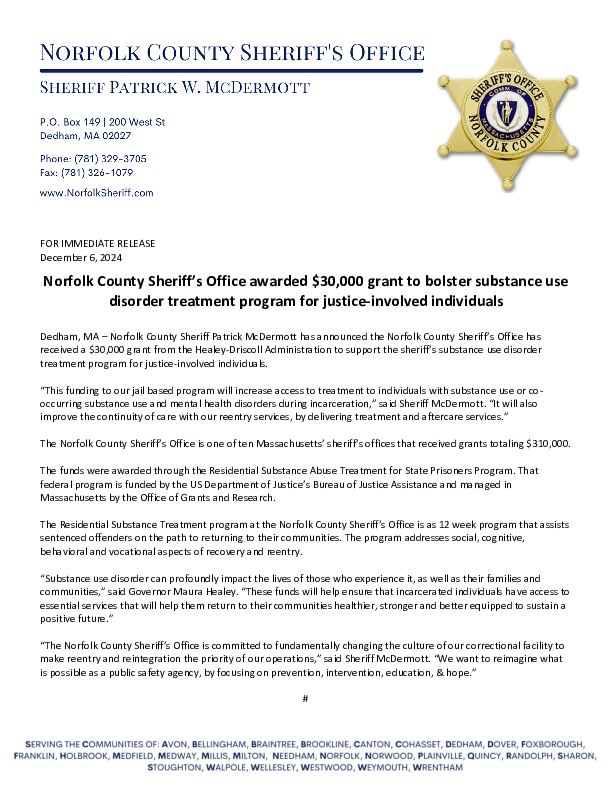

The intensive substance use treatment program is a 45-day session available to pretrial individuals designed around the following elements:
SUP Classes Consist of the following: Parenting; True Thought; Beyond Jail; HOPE; 12 Steps; Men’s Health; Coping Skills; Substance Use 101, 201, 301; Transition to Community; Overdose Prevention; AA Group; Healthy Relationships; and Public Speaking.
RSAT is a twelve-week program that assists sentenced offenders in returning to the community. Comprehensive Cognitive Behavioral and Addiction related courses include: Transition to Community, Beyond Jail, Breaking the Cycle, Bottom Line, Houses of Healing, High Risks, Science of Addiction, Coping Skills, Computer Programming, Thinking For a Change, Employment Readiness, and Public Speaking. The program addresses social, cognitive, behavioral, and vocational aspects of recovery and re-entry.
This program focuses on educating offenders with respect to opiates, reentry, and medication-assisted options. Medication-assisted treatment (MAT), including opioid treatment programs (OTPs), combines behavioral therapy, education, and medications to treat substance use disorders. Medications include Methadone, Naltrexone, and Buprenorphine. MOUD also with offenders in the correctional facility as well as post-release to assist with the recovery process after incarceration.
The Pathway to Treatment program helps offenders who may be struggling with treatment courses. The Norfolk County Sheriff’s Office offers several different treatment programs to find the best fit for each offender, who will further become aware of the benefits of treatment programming and post-release recovery options.
This is a program that follows the history of the individual’s involvement in the fellowship and the program of 12 Step Recovery.
The Men in Recovery program focuses on the specific needs of males when it comes to substance use disorders. Stigma and mental health factors will be discussed as well as any personal issues offenders wish to bring up.
Helping Men Recover is an eighteen-session program that encourages men to think about themselves in a new light. This course is divided into 4 main topics: Self, Relationships, Sexuality, and Spirituality. Within these topics, more in-depth discussions will be focused on self-awareness, trauma, socialization, family, and more. Throughout the sessions, offenders will get a better understanding of how these factors have played into their addiction and will be provided with the tools to think and react in a new, more positive and productive way.
Developed in collaboration with the Department of Justice as well as the Federal Bureau of Prisons, the Breaking the Cycle series uses cognitive-behavioral practices and evidence-based strategies to assist participants as they work to make positive changes with respect to their criminogenic thoughts and behaviors, and patterns of substance use.
These groups prepare the offender to maintain and enjoy sobriety and recovery after release. This program includes the reading, study, and discussion of the AA publication “Living Sober.” The book touches on many topics related to not picking up the first drink or drug. A wide variety of topics are addressed as recovery impacts all areas of life. Various substance use treatment-related groups held include the topics: Relapse Prevention, Tools of Recovery, Living Sober, Road to Recovery, Jump Start, Wake-Up Call, and Recovery Toolkit.
The NARCAN Training program is facilitated by Safe Coalition, Inc. educating individuals to learn about Narcan/Naloxone as well as opioid overdoses and reversals. Participants will learn how to distribute Narcan in case of an overdose. Overdose Prevention.
Reading has helped many people overcome addiction, and recovery-based books can help you. While reading up on addiction and how to recover isn’t a requirement for achieving abstinence, it can be a tremendously beneficial tool for people looking for more information, similar experiences, or a blueprint for life after treatment.
This program follows the history of the individual’s involvement in the fellowship and the program of 12 Step AA Recovery. It outlines a set of principles and course of action for tackling alcoholism, drug addiction, and compulsion. Twelve Step Meeting is intended for general use for any addictive or dysfunctional behavior.
SMART Recovery’s 4-Point Program helps with addictive behaviors, including both substance and activity/process addictions. Trained volunteer facilitators lead effective mutual support group discussions on the following topics:
Al Anon participants come to understand problem drinking as an encompassing illness that affects everyone in the family. By listening to speakers at Al Anon meetings, participants can connect and relate to their own role in this family illness. This insight puts them in a better position to play a positive role in their own family’s future.
Narcotics Anonymous (NA) is a program of complete abstinence for recovering and active drug users. This program uses a 12-step model developed for people with various substance use disorders.
The purpose of a Corrections AA Group is to coordinate the work of individual A.A. members and groups who are interested in carrying AA’s message of recovery to incarcerated alcoholics. Bringing meetings and literature into facilities raises awareness of the Corrections Correspondence Service (C.C.S.) among "inside" and “outside” A.A. members and helps offenders’ transition to a local A.A. Community.
The Alcoholics Anonymous Way of Life Program (AAWOL) started in 1969 when members of the Alcoholics Anonymous community were invited to participate in groups. AAWOL has evolved to now offer a structured program of reading and group discussion using the AA book Twelve Steps and Twelve Traditions as the focus. The AAWOL program has been shared throughout Massachusetts and the United States.
The mental health education group is an ongoing group of support and psychoeducation programming for those interested in topics such as: mindfulness, distress tolerance, effective communication, accountability, relaxation, coping with incarceration, emotional intelligence, and current events. The inmates can bring topics of interest to be considered and are encouraged to be active in their learning process and growth as they prepare for their release to the community.
Positive Psychology is the modern scientific study of the individual’s unique strengths and abilities to maintain happiness while living a meaningful life. Increasing self-esteem is a goal as well as improvement in all areas of life including relationships and careers. One of the key ways in which it accomplishes this is by teaching people how to discover and live by their unique strengths. Each week group members will be assigned practical exercises that will need to be completed between the weekly meetings. Sessions will consist of group members sharing their responses to the weekly exercise, a review of positive psychological theories, and an ensuing vibrant discussion among group participants.
This eight-week course is a cognitive behavioral program designed for offenders who may recognize they have repeatedly behaved in ways that were not in their own best interests, yet seem to fall back into them again and again. Participants pay attention to their thoughts, feelings, attitudes, and beliefs, and how these connect to their problematic behaviors. The goal is for them to develop new ways of thinking and work to reshape their behaviors.
The curriculum includes “Ten Ways” to build resilience in dealing with life problems including: Problem solve; Keep calm; Take Ownership of Your Life; Be proud of surviving; Develop insight; Use Humor; Be realistic; Get support; Don't look for blame; Do something.
This eight-week program is a “cognitive behavioral treatment model” based course that addresses addictive and/or compulsive behavior. Addictive thinking patterns are very similar to criminal thinking patterns. Anyone using criminal and addictive thinking patterns is going to behave in destructive ways that will continue to lead to incarceration. Correcting that behavior starts with correcting the destructive thinking.
This course is designed to introduce safe and accessible postures, breathing techniques, and relaxation methods of basic yoga. Students will begin to experience the benefits of stretching, moving, and breathing freely as they relieve built-up stress, learn to relax, and ultimately get more out of day-to-day life. The aim of this course is to promote vibrant health and tap into the body’s latent energy reserves.
Life skills is an eight-week course that covers the skills needed to prepare for life in the community after incarceration. The program addresses such topics including: public speaking, self-control, substance use, maintaining healthy relationships, and interpersonal skills, entering the workforce.
Making Time Count is a 13-session program that equips offenders with “tool kits” to handle everyday struggles such as anxiety, depression, demands of the environment, and personal disputes. Making Time Count highlights the influence mental health has on an offender’s time while incarcerated and works to improve the overall state of mind. Through this course, offenders will be assigned various “self-work” exercises that allow them to fully absorb the skills and tools taught. Some specific topics covered in this program include: learning to forgive yourself, healing pain and emotional wounds, learning healthy ways to relax and calm down, and managing anger.
Transition to Community is a ten-week program that provides an inmate with Self-Help, Education, Employment, Housing, and Administrative resources he may need to be a successfully-integrated citizen.
This eight-week program is designed to help offenders examine, evaluate, and explore the thoughts and beliefs that play out in their domestic relationships (partner, family, and children), while also lending them the education to develop alternative, non-abusive, non-controlling, and non-violent behaviors.
This eight-week program, using the SAMHSA CBT manual, is designed to help participants learn ways to control their anger and explore their actions and behaviors involving violent situations. This course aims for participants to learn ways to control abusive outbursts and aggressive behavior.
The Lifestyles Curriculum is an eight-week program that utilizes various media formats to present expert opinions and true-life experiences about a wide range of topics including: Genetics, recovery medication, men in media, and relaxation/stress response. The primary goal of this group discussion format, conducted in a comfortable, confidential, and relaxed setting, is to provide a deeper understanding and greater insight of so many typical life issues facing all of us today.
A support group that offers fathers the ability to discuss topics regarding their children and family. Some of the more popular topics include relationships with children and their mothers, challenges once they are released, and how to work with the Department of Children and Families. (A Prerequisite for Nurturing Fathers Program)
The Nurturing Fathers Program is an evidence-based, 13-week training course designed to teach parenting and nurturing skills to men. Each two-hour class provides proven, effective skills for healthy family relationships and child development.
This four-session course, in partnership with the South Shore YMCA, covers topics ranging from sports nutrition and metabolism to weight loss techniques and plans, and often includes an enhancement of a participant’s nutrition knowledge and the importance of Blood Pressure.. The class is both inherently valuable and often works hand-in-hand with the rigors of daily life.
The Re-entry Veteran's Services is a joint collaboration between veteran assistance service providers including such agencies as the Massachusetts Veteran Services, Veterans Administration, Veterans Inc., Volunteers of America, and the Vet Center. Re-entry staff and the aforementioned providers address the needs of incarcerated veterans, both sentenced and pretrial.
Mentors work with the inmate population to create and envision their personal goals using a variety of tools and techniques, helping navigate the challenges they face during the reentry process. Mentoring is a fundamental form of human development in which one person invests time, energy, and personal know-how in assisting the growth and ability of another person. Mentoring is built on trust in which a person with greater experience, expertise and wisdom counsels, teaches, guides and helps another person to develop both personally and professionally.
Offender recreation activities are permitted and encouraged in each module yard on a daily basis. Among the currently permitted sports activities are basketball, handball, whiffle ball, and weight training. Recreational board games are also supplied to the offender population.
